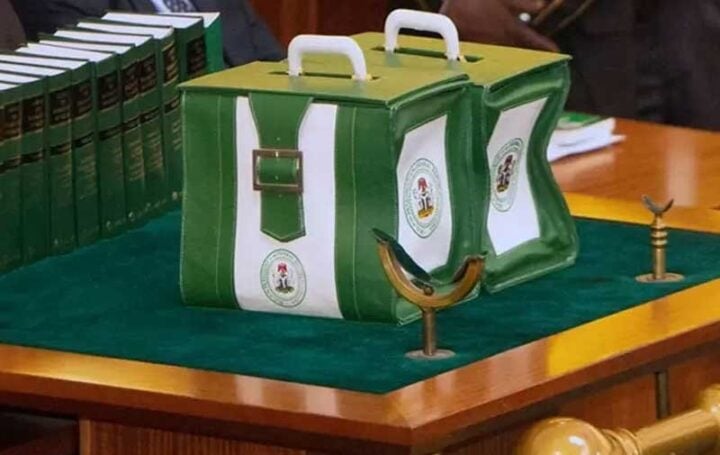Nigeria finds itself trapped in a fiscal paradox that defies basic economic logic. Despite removing fuel subsidies that previously drained trillions of naira, despite earning significantly more naira from oil revenue due to currency devaluation, and despite posting impressive revenue growth figures, the Federal Government has managed to overshoot its borrowing projections by a staggering 55.6% in 2025. This isn’t just fiscal mismanagement—it’s a masterclass in how not to run a national economy.
From January to October 2025, the government borrowed N15.8 trillion from domestic investors against a target of N10.9 trillion. This represents not merely an overshoot but a fundamental breakdown in fiscal discipline. What makes this particularly egregious is the context: the government projected N41.91 trillion in revenue against N54.99 trillion in expenditure—yet with revenues actually increasing, borrowing has accelerated rather than declined.
When President Tinubu announced the removal of fuel subsidies in May 2023, the policy was supposed to free up resources for critical infrastructure and development projects. Similarly, the unification of exchange rates was meant to boost government naira revenues from dollar-denominated oil income.
So where did all the money go? The harsh reality is that the savings from subsidy removal have been swallowed whole by an ever-expanding cost of governance. The 2025 budget stands at N54.99 trillion, a bloated figure that reflects not strategic investment but institutional gluttony. Rather than using increased revenues to reduce borrowing, the government simply expanded spending to match and exceed available resources in what can be described as gross fiscal irresponsibility.
Advertisement
Perhaps the most troubling aspect of Nigeria’s fiscal management is the debt service burden. In 2024, debt service consumed 69% of total government revenue, a ratio that should trigger alarm bells in any responsible administration. By the fourth quarter of 2024, recurrent debt had reached N3.69 trillion, overshooting projections by N1.63 trillion or 78.63%.
Foreign debt servicing costs tell an even grimmer tale. In the first eight months of 2024, these costs surged by 107.7%, reaching N3.8 trillion against a projection of N1.83 trillion. The primary driver? Naira depreciation, which means that every dollar of debt costs exponentially more to service. Ironically, the same devaluation that boosted naira oil revenues has made foreign debt obligations crushingly expensive.
We are now caught in what economists call a debt trap: borrowing not to invest in growth-generating projects but simply to service existing debt. When debt service exceeds capital expenditure, as has become routine, a nation is essentially mortgaging its future to pay for past consumption.
Advertisement
Government officials have touted impressive revenue figures: total revenue hit N19.354 trillion in 2024, representing 149% growth over 2023. Oil revenue tripled from N2.430 trillion to N6.180 trillion, while non-oil revenue rose from N3.312 trillion to N4.557 trillion. Yet despite this revenue windfall, the government still exceeded its expenditure target, overshot borrowing projections, and still finds itself in a deeper fiscal hole. This reveals the uncomfortable truth: Nigeria’s fiscal crisis is not fundamentally a revenue problem but a spending control problem.
Excessive government borrowing has devastating ripple effects throughout the economy. When the Federal Government floods the domestic market with securities, it drives up interest rates and diverts capital from productive private-sector investment. Banks naturally prefer lending to government—backed by a sovereign guarantee, over riskier private businesses.
This creates a vicious cycle: private sector growth stagnates due to credit constraints, reducing future tax revenues, which then necessitates more government borrowing. Meanwhile, the Central Bank’s aggressive monetary tightening has made borrowing prohibitively expensive for businesses, further constraining economic growth.
The Way Forward: Essential Reforms
Escaping this fiscal quagmire requires political will and uncomfortable choices. The government must take decisive action across several fronts:
Advertisement
Enforce Borrowing Discipline: Parliament must enforce the Fiscal Responsibility Act’s 3% deficit-to-GDP threshold. New borrowing should require extraordinary justification and super-majority approval, not be treated as routine.
Cut the Cost of Governance: Nigeria’s N54.99 trillion budget must be slashed by at least 30%. This means eliminating duplicate agencies, reducing the size of government convoys, cutting foreign travel allowances, and ending wasteful capital projects with low economic returns. The public sector is bloated beyond justification.
Implement Zero-Based Budgeting: Every ministry must justify every naira requested from scratch, rather than automatically inflating previous budgets. This exposes waste and forces genuine prioritization of national needs.
Eliminate Ghost Workers: Comprehensive payroll audits using biometric verification and digital payment systems must be mandatory across all government levels. Ghost workers continue draining billions that could fund development.
Advertisement
Reform Revenue Collection: Rather than imposing new taxes on already-burdened citizens, dramatically improve collection efficiency. Deploy technology to track economic activity, expand the tax net to the informal economy, and visibly prosecute tax evaders.
Restructure Existing Debt: Negotiate with creditors to extend repayment periods and reduce interest burdens. Prioritize paying down high-interest domestic debt first to reduce the crushing debt service burden.
Advertisement
Embrace Realistic Budgeting: Base budgets on conservative assumptions, actual average oil production over recent years, realistic price forecasts, and proven tax collection capacity. If revenues exceed projections, use windfalls to pay down debt, not expand spending.
Establish Independent Oversight: Create a non-partisan fiscal council of respected economists empowered to audit budget proposals, assess sustainability, and publicly critique government financial management. Give this body constitutional protection from political interference.
Advertisement
Enable Real-Time Transparency: Publish real-time dashboards showing revenue collection, spending, and borrowing. Citizen oversight is impossible without accessible data.
Nigeria stands at a crossroads. Despite increased revenues from subsidy removal and currency devaluation, the government has chosen the path of fiscal recklessness. Borrowing 55% more than projected while revenue grows is not economic management, it’s economic malpractice.
Advertisement
The consequences of continued indiscipline are predictable and dire: unsustainable debt levels leading to default or restructuring, currency crisis as investors lose confidence, crowding out of private sector growth, persistent inflation, and potential loss of fiscal sovereignty as multilateral institutions impose conditions.
Most tragically, resources that should build schools, hospitals, roads, and digital infrastructure are instead consumed by debt service and recurrent expenditure. We are sacrificing tomorrow’s prosperity for today’s consumption.
The Tinubu administration inherited significant fiscal challenges, but its response has made matters worse. Removing subsidies was politically courageous, but that courage must now extend to controlling spending, enforcing discipline, and making hard choices necessary for fiscal sustainability.
Nigerians deserve a government that lives within its means, invests strategically in the future, and demonstrates basic competence to match spending to available resources. The alternative, continued borrowing binges despite growing revenue, is a road to national bankruptcy. The question is no longer whether Nigeria can afford to change course. It’s whether we can afford not to.
Oshobi is the Head of Strategy and Planning of the Narrative Force.
Views expressed by contributors are strictly personal and not of TheCable.


